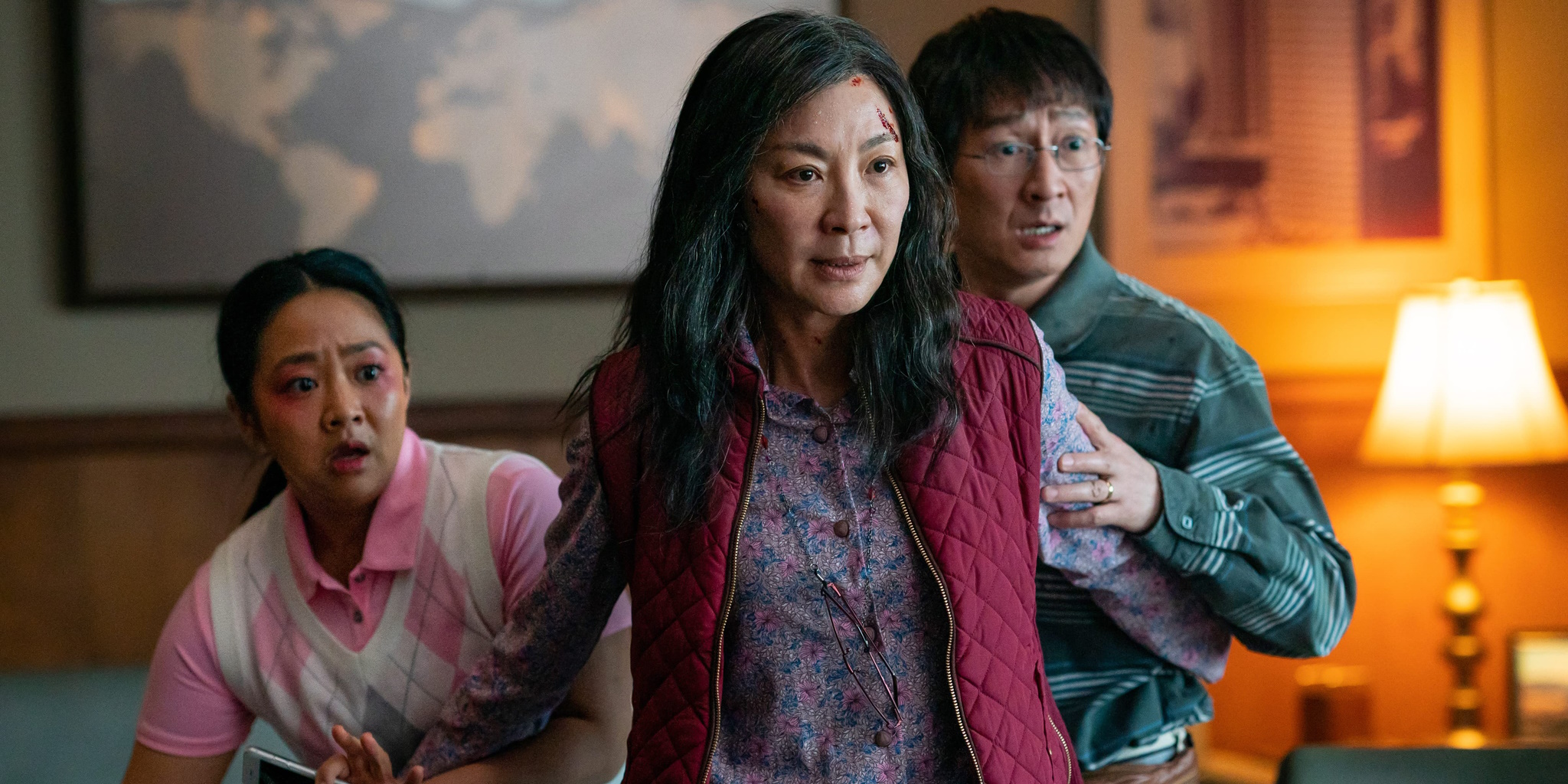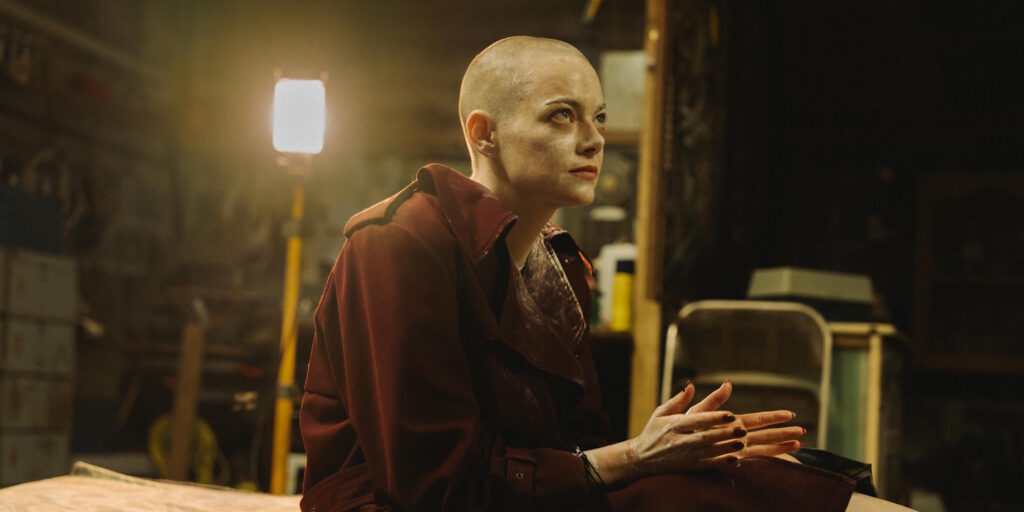[Originally published at Cinema St. Louis’ The Lens.]
Regret is one of the constants of the human experience, along with death and taxes. Roads not taken have a habit of lingering in our memories like ghosts, tormenting us with speculative flickers of might-have-been alternate lives. Everyone screws up in moments both decisive and banal, no one ends up exactly where they anticipate, and the parts that turn out worse (or just duller) than we imagined always seem to pile up faster than the pleasant surprises. Eventually, we look back and realize that there are more choices behind us than in front of us, and (perversely) we waste our remaining years dwelling on the possibilities that time’s unidirectional arrow has rendered forever beyond our reach.
Everyone starts to sense the weight of regret eventually, although some take longer than others. Fiona Apple always seemed to comprehend it on some level, while Trent Reznor spent nearly two decades working through his adolescent rage before he conceded with a defeated sigh that, “I used to have a purpose/then again, that might have been a dream.” In contrast, first-generation Chinese-American nobody Evelyn Wang (Michelle Yeoh) might be in her late 50s, but her daily existence is such a harried whirlwind of obligations and anxieties that the insistent itch of regret hasn’t really had the space to develop into full-blown, paralyzing existential despair.
She and her upbeat but diffident husband, Waymond (Ke Huy Quan), own a scruffy coin laundromat in Los Angeles. An IRS audit of this business has Evelyn contending with an avalanche of crumpled receipts and invoices. She’s also kicking herself for trying to deduct the vestiges of her abandoned, non-laundry ambitions as legitimate expenses. In addition to a struggling business, Evelyn has a prickly relationship with her young-adult daughter, Joy (Stephanie Hsu), whom she criticizes relentlessly while simultaneously guilt-tripping her for not visiting more often. Joy’s sexuality and her relationship with an eager-to-please White girl named Becky (Tallie Medel) are particular sore spots.
Evelyn insists that she’s fine with it – it’s just that her elderly widower father, nicknamed Gong Gong (James Hong) has a very… traditional outlook. Meanwhile, the laundromat’s regular customers pepper Evelyn with complaints, come-ons, and racist microaggressions. On top of all these stressors, she’s also cooking, cleaning, and overseeing preparations for a Chinese New Year open house. Her attention is being pulled in so many different directions, she doesn’t even notice that Waymond has been meekly trying (and failing) to serve her with divorce papers all morning.
There are flashes of weirdness early on, but Everything Everywhere All at Once doesn’t truly start to crack open and reveal its fantastically deranged center until Evelyn, Waymond, and Gong Gong arrive at the local revenue office for a meeting with humorless, patronizing IRS agent Deirdre (Jamie Lee Curtis in dyspeptic cat-lady mode). In the elevator, Waymond’s demeanor abruptly changes and he urgently gives Evelyn some bizarre instructions. This kicks off a motherlode of breathless sci-fi exposition: It turns out that an alternate-universe iteration of her husband has been scouring the infinite sea of universes to find a version of Evelyn who can defeat an ascendant, reality-warping entity named Jobu Tupaki. Waymond believes that the sheer mediocrity of this particular universe’s Evelyn makes her an excellent tabula rasa for the talents of other, more successful Evelyns, who made different (read: better) choices at every decision point in their lives. (As Waymond bluntly puts it, albeit without a trace of cruelty, “You can do anything, because you’re so bad at everything.”)
Unfortunately, Jobu has already caught up with Waymond and his allies, and the IRS building is swiftly transformed into a cuckoo-bananas interdimensional battlefield. Waymond becomes a kung fu master, fending off security guards with a weaponized fanny pack, while Deidre mutates into a hulking monster with the strength of a champion wrestler. Evelyn can barely process what’s happening, but soon she’s digitally searching for survival skills in the vast array of alternate universes – such as the one where she became a glamorous action-movie star, not unlike Michelle Yeoh. (There’s also an opera singer Evelyn, a teppanyaki chef Evelyn, and an Evelyn from a universe where humans evolved hot-dog fingers. Don’t ask.) When the mysterious Jobu finally makes an appearance, however, the laws of reality don’t just bend – they shatter into a million pieces, as though a malevolent, omnipotent Bugs Bunny had entered the story and made it their private plaything.
This all might sound breathlessly zany, but it doesn’t really convey the sheer freneticism and deliriously go-for-broke enthusiasm of Everything Everywhere All at Once. Euphoric and sophomoric in equal measure, this anything-goes mindbender is the long-gestating brainchild of filmmaking duo Dan Kwan and Daniel Scheinert, known professionally as Daniels. Viewers who are familiar with their debut feature, Swiss Army Man (2016) – a conceptually fractured and startlingly touching romantic fantasy about a farting Daniel Radcliffe corpse – will have some notion of Everything’s sensibilities. However, this new film is operating on an entirely different level, in terms of budget, scope, and storytelling ambition. Swiss Army Man asked viewers to accept a panoply of weirdness with an awkward grin. Everything demands that they embrace every lunatic thing that the filmmakers throw at them with the transcendent joy of a plump Bodhisattva.
That receptiveness may be more than some viewers are willing to grant Daniels, which is perhaps the film’s most conspicuous (only?) flaw: It won’t be for everyone. No movie of such madcap vision and gleefully relentless momentum is all that concerned with Marvel-style universal appeal. It seems likely that Everything is destined for the same middling box office and future cult adoration as Donnie Darko, Speed Racer, and Scott Pilgrim vs. the World. The Daniels are asking a lot of their viewers, who are obliged to wrap their minds around heaping helpings of Rick & Morty-esque sci-fi madness and The Good Place-ish metaphysical paradoxes – The Bearimies! – all delivered at atmosphere-breaching velocity. The ideal audience member is one who laughs shamelessly at pantless martial-arts goons wearing butt-plugs, but also sighs in delight at the woozy Wong Kar-Wai homage that appears between the Ratatouille-but-racoons universe and the universe where Evelyn is a rock.
That is to say: Everything is a movie lover’s movie, made with a breathtaking balance of reverence and impudence. Every moment of heart-wrenching sorrow is undercut by a dumb joke, and every moment of grotesque absurdity is smuggling a gesture of earnest tenderness. It’s no accident that the third eye is a recurring motif in the film: Everything Everywhere All at Once is like a Zen kōan in cinematic form. How can such a stupid film so feel so sublime? How can such erudite directors be so juvenile? Daniels’ feature is a work that seems alive with possibility, a sensation so rare in modern genre filmmaking that it’s practically nausea-inducing to have it pumped into your brainstem at 24 fps.
Of course, endless possibilities can be paralyzing in the moment – and disillusioning in retrospect. Which brings us back to regret. The multifarious timelines that Evelyn encounters are insidiously tempting, presenting her with visions of alternate lives that are more glamorous, accomplished, and fulfilling than her own. Like all human beings, existence offered her a veritable ocean of possibilities, yet her choices at every junction ultimately led her to an unhappy marriage, a bitter child, and a failing business. As Mitski would say: Her body’s made of crushed little stars and she hasn’t done anything. If you can screw up limitless potential so spectacularly, why bother making any choices at all? Why not just … give up?
Exposure to infinite realities can eventually fracture a mind, as it happens: Joju peered into the whirling fractals of the cosmos and concluded that if everything is possible, then nothing matters. Color over reality with every crayon and eventually you just get black, an annihilating void that makes every decision meaningless, every ambition ridiculous, every connection a joke. Joju never made it to the regret of middle age, snagging on the nihilistic despair of adolescence. They’ve decided to peace out and take the multiverse with them, and even the most badass Evelyn in existence may not be enough to stop them, however well-trained and -armed she might be.
Everything is unambiguously an action film, one in which almost anything handy can become a weapon. (At one point, Jenny Slate appears and does some hilariously horrifying things with a Pomeranian on a leash.) This provides the 59-year-old Yeoh with an opportunity to demonstrate that she’s as lithe and deadly as ever, reaffirming her status as an action star for the ages. What use, however, are martial-art skills against a devouring hole that contains literally everything? Preventing the destruction of the entire multiverse might require an approach that’s more judo than karate, and it’s only by looking for the constants in her infinitely branching lives that Evelyn can hope to find the secret elixir for despair. Here, Everything reveals its sneaky, squishy heart, the humble comfort that lies beyond both regret and nihilism. It offers a Paddington Bear refinement of Morty Smith’s realist creed: Nobody exists on purpose. Nobody belongs anywhere. We’re all going to die. So share a cookie with someone.
Everything Everywhere All at Once opens in theaters everywhere on Friday, Apr. 8.




